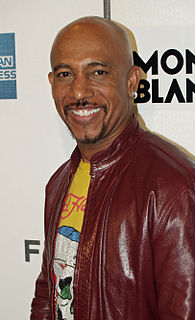A Quote by Wayne Pacelle
There are new ways of producing food, film, clothing, and research that steer clear of using animals. Some of those products are functionally equivalent or even superior to what we're used to. Now corporations, legislatures, and other institutions are responding, and supporting these shifts, so we're seeing seismic changes throughout society.
Related Quotes
The word "veganism" denotes a philosophy and way of living which seeks to exclude - as far as is possible and practical - all forms of exploitation of, and cruelty to, animals for food, clothing or any other purpose; and by extension, promotes the development and use of animal-free alternatives for the benefit of humans, animals and the environment. In dietary terms it denotes the practice of dispensing with all products derived wholly or partly from animals.
The elimination of horrible disease, the increase of the quality of lives (for humans and for animals) achieved through research using animals is so incalculably great that the argument of these critics, systematically pursued, establishes not their conclusion but its reverse: to refrain from using animals in biomedical research is, on utilitarian grounds, morally wrong.
It may be thought justifiable to require tests on animals of potentially life-saving drugs, but the same kinds of tests are used for products like cosmetics, food coloring, and floor polishes. Should thousands of animals suffer so that a new kind of lipstick or floor wax can be put on the market? Don't we already have an excess of most of these products? Who benefits from their introduction, except the companies that hope to profit from them?
The maker movement is about people who want to gain more control of the human design world that they interact with every day. Instead of accepting off-the-shelf solutions from institutions and corporations, makers would like to make, modify, and repair their own tools, clothing, food, toys, furniture, and other physical objects.
The sheer novelty and glamor of the Western diet, with its seventeen thousand new food products every year and the marketing power - thirty-two billion dollars a year - used to sell us those products, has overwhelmed the force of tradition and left us where we now find ourselves: relying on science and journalism and government and marketing to help us decide what to eat.
I love animals; I've always loved animals. It's how I identified myself for so long, but I didn't know that in so many ways, I was living my life not in alignment with that. And once I learned about those ways I could be loving animals better, I made those changes, which made me happier and had me living a life that had me contributing.
I think that now that we are seeing multimedia types of productions with videos and pictures and human beings performing the acts that animals used to perform, such as in Cirque du Soleil and other traveling troops, there is no need to parade animals around anymore in cages for personal gratification.
I was indeed a snob, if you agree with this definition: 'A person who believes that their tastes in a particular area are superior to those of other people.' I do believe that. Not superior to all other people, but to some, most probably including those who think Transformers: Revenge of The Fallen is a great film. That is not simply ego on my part. It is a faith that after writing and teaching about films for more than 40 years, my tastes are more evolved than those of a fanboy.
I don't hold animals superior or even equal to humans. The whole case for behaving decently to animals rests on the fact that we are the superior species. We are the species uniquely capable of imagination, rationality, and moral choice - and that is precisely why we are under an obligation to recognize and respect the rights of animals.
































